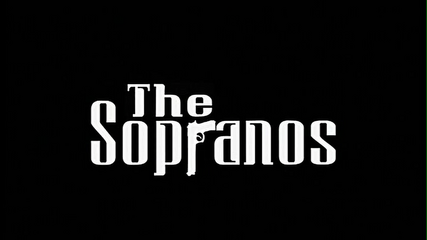Pop Stuff: The Idiot Box Comes of Age
New TV is gripping and entertaining but it’s also challenging, imaginative and aware
In 1930 Philo Farnsworth patented the first electronic television, presaging the ubiquity of TV as we know it, more omnipresent than God, the lynchpin of family life. Farnsworth, born in Utah, in a house without electricity and only twenty-four at the time, believed his invention signaled utopia, ”˜If we were able to see people in other countries and learn about our differences”¦war would be a thing of the past,’ he proclaimed, channeling his inner Zuckerberg. TV hasn’t saved us but it’s changed our reality. In 1960 the first televised presidential debate handed Nixon an unexpected defeat; on TV, J.F.K. was easier on the eyes. And later that decade, viewers implored the ”˜real’ Navy to save characters on the ”˜fictional’ show Gilligan’s Island solidifying TV’s reputation as The Idiot Box; hoodwinking the public. TV grew up like a high school rebel: recklessly, pushing consumerism, delivering Fake News and dumbing us down. But today TV has a new avatar.
The Idea that a TV show could be a cinematic oeuvre took hold in the nineties with The Sopranos, David Chase’s acclaimed drama about a mobster’s inner and outer demons. In the noughties The Wire pushed TV one step further. Ed Burns’ crime series was fundamentally a socio-political look at inner city inequality so insightful that Harvard taught the show. The subsequent digitization of TV propelled creative talent to the home of the day time soap and the late night infomercial. At this year’s Emmy Awards (the Oscars for TV shows) Riz Ahmed, Donald Glover and Lena Waithe made history by being the first South Asian, Black Man and Black Woman to win for acting, directing and writing respectively. Their shows, The Night Of, Atlanta and Master of None highlight criminal justice, racial tensions, islamophobia, queer identity and the immigrant experience. TV propped us up where our systems let us down, inching closer to art-as-activism.
TV’s Golden Age is no full blown My Fair Lady-like makeover but the medium, making space for content that broadens our minds, has blurred the lines between pop culture and art. As CNN’s talking heads bark at us, John Oliver is reporting news that matters. If Koffee With Karan’s Bollywood love fest is too saccharine, we can look forward to AIB satirizing politics on The Ministry from Amazon. And for each Dynasty reboot there is a show in the works on the platforms of the future that offers more than affairs and aspirational living. My top picks are Netflix’s adaptation of Vikram Chandra’s Sacred Games, a Mumbai set crime and punishment epic and Apple’s first TV venture, Spielberg’s Amazing Stories. Both sure to entertain on one level and address the existential angst of our current climate on another.
New TV is gripping and entertaining but it’s also challenging, imaginative and aware. As TV evolves and Netflix queues become more relevant cultural barometers than bookshelves, a channel surfer can no longer be dismissed as a couch potato. Riz Ahmed’s Nasir Khan elucidates the experience of minority men disenfranchised by the justice system. Elizabeth Moss’s Offred is a study in feminism. These characters are as necessary as Macbeth or Elizabeth Bennet. TV’s themes have matured too. Shows like Black Mirror, Mr. Robot and Westworld offer food for thought as did prescient literary greats, George Orwell and Isaac Asimov. TV is a far cry from the antidote to war but it’s reaching more people and doing more to teach us about our differences than any other art form. The Idiot Box has come of age.
Soleil Nathwani is a New York-based Culture Writer and Film Critic. A former Film Executive and Hedge Fund COO, Soleil hails from London and Mumbai.







